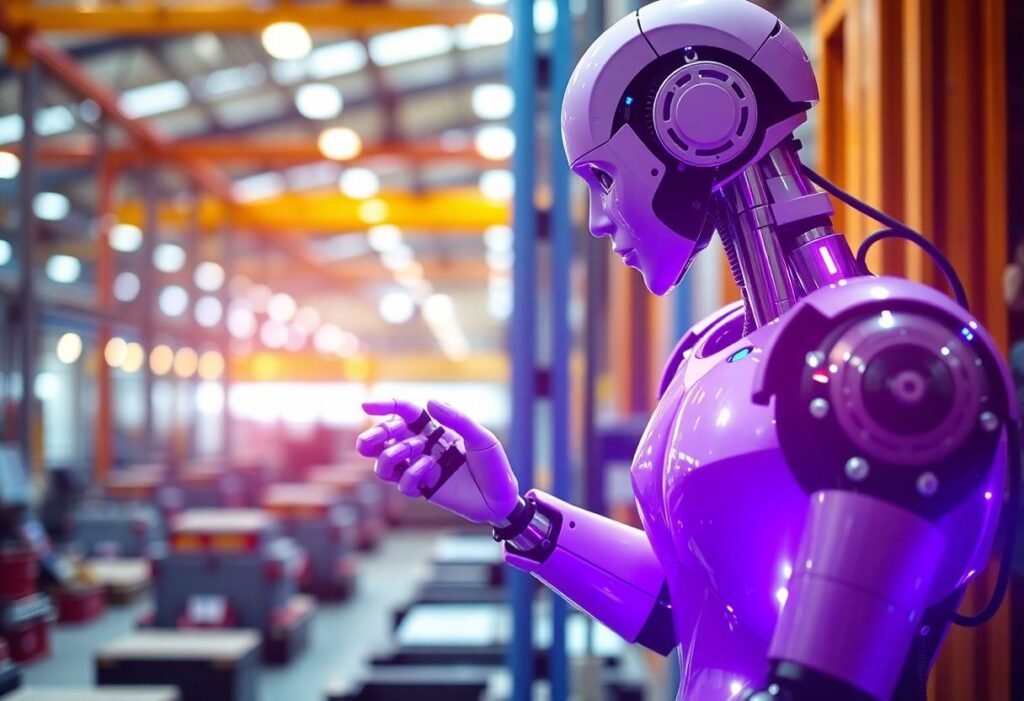The integration of robotics into manufacturing processes represents a significant leap forward in innovation, leading to increased efficiency and productivity across various sectors.
Enhancing Production Efficiency through Robotics
The use of robotics in manufacturing has transformed traditional processes into highly efficient operations. By automating repetitive tasks, companies can achieve remarkable speed and accuracy, resulting in reduced production times and cost savings. Integrating robotic systems allows businesses to optimize their workflows, thereby increasing their output without sacrificing quality. Moreover, robots can operate continuously, which means that production lines can run 24/7, further enhancing overall operational productivity. This radical shift not only saves time but also allows human workers to focus on more complex tasks that require creativity and critical thinking.
Data-Driven Robotics in Manufacturing
Robotics today is not just about mechanical automation; it also involves leveraging data analytics to drive performance improvements. By incorporating advanced sensors and IoT technology into manufacturing processes, companies can collect real-time data on machine performance, product quality, and operational efficiency. This data can be analyzed to make informed decisions and optimize manufacturing processes. The shift towards data-driven operations fosters a culture of continuous improvement, allowing organizations to adjust swiftly to market demands and operational challenges.
Robotics Leading to Safer Work Environments
One of the significant benefits of integrating robotics into manufacturing is the improvement of workplace safety. Robots can perform dangerous tasks that might put human workers at risk. This not only reduces workplace accidents but also leads to lower insurance costs for companies. For example, in industries such as automotive manufacturing, robots handle heavy lifting and hazardous substances. As a result, human employees can work in safer environments, reducing injuries and promoting workforce well-being. The advancement of robotic safety features further supports this initiative, ensuring that machines can operate alongside humans without compromising safety.
Customization through Robotic Flexibility
In today’s rapidly changing market, customization is key to remaining competitive. Robotics offers unparalleled flexibility in manufacturing processes, allowing companies to adapt to changing consumer demands quickly. With programmable robots, manufacturers can switch between different tasks without substantial downtime. This capability is essential for businesses focusing on customized production rather than mass production. By enhancing flexibility, robotics enables manufacturers to deliver personalized products, thereby improving customer satisfaction and loyalty.
The Future of Robotics in Manufacturing
The future of manufacturing is undoubtedly tied to advancements in robotics and automation technologies. As artificial intelligence and machine learning continue to evolve, we will see robots becoming more intelligent and capable of performing complex tasks independently. This evolution will further drive innovation in production processes and operational efficiency. Furthermore, as the demand for sustainable practices rises, robotics will play a pivotal role in implementing sustainable manufacturing strategies, using fewer resources while maximizing output. Staying ahead in industry innovation necessitates embracing these technologies.
Conclusion and Considerations
Disclaimer: This content is for informational purposes only and should not be considered as professional advice.





















